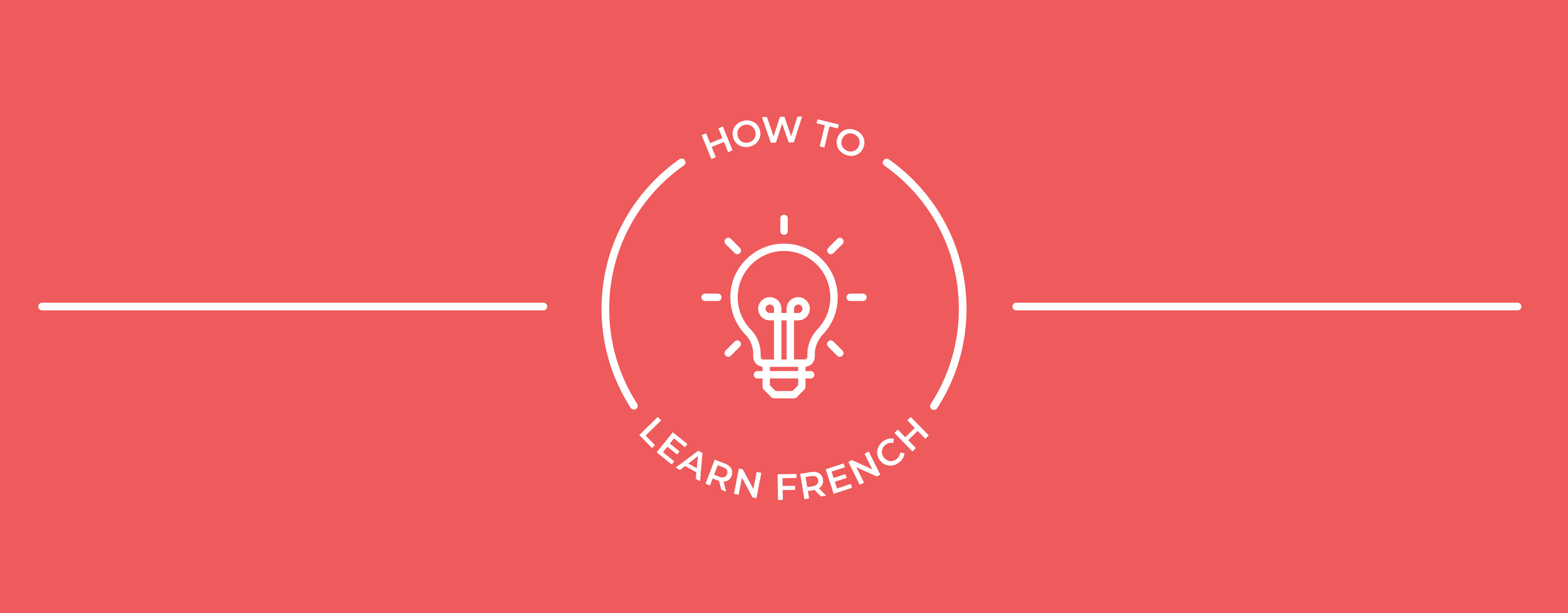How to Learn French - you're not alone.
With the new year now underway, I’ve made a return to tennis and its attendant feeling of failure it appears to evoke in me.
As you well know by now, j’adore mon tennis* but as a beginner there is more than one concept I’m having trouble mastering.
Par exemple*, the coach wants me to hit the ball with an upward motion in order to generate some top spin instead of hitting it so flat. He’s been trying to get me to do this now for about a year and I feel as though I’m no closer to doing it now than when I first picked up la raquette*. He’s explained it to, shown me, drilled me, encouraged me, cajoled and reminded me about mille fois*, and yet my body is just not getting the message.
Today, however, I may have had a breakthrough, and it was all down to just a few words. Those mots magiques*, you ask?
“Everyone finds it difficult, Katrina.”
All of a sudden, it clicked. I still can’t do it, bien sûr*, (the man’s good but he’s not a miracle worker) but with that comment, my mindset completely changed. All of a sudden the (embarrassing amount of) pressure I was putting on myself lifted and I nearly laughed out loud because it’s something I say regularly to my own students.
We all like to think we’re unique and it’s true that no-one else has the same mélange* of DNA, strengths, weaknesses, quirks and foibles. However, when it comes to learning, thinking you’re unique can sometimes hamper your progress, particularly when you think you’re the only one who’s having trouble grasping something.
What we see at Lingua Franca, and what I’m sure coaches the world over see, is that there are certain skills or concepts that the vast majority of learners find difficult to master.
So here’s an incomplete list of some of the most common.
Not being able to remember the gender of words
Forgetting the third person plural conjugations of être* (sont), avoir* (ont), aller* (vont) and faire* (font).
Thinking it’s vous faisez, not vous faites* (it’s irregular)
Not being sure how to say ‘my friend’
Not knowing how to say ‘some water’ versus ‘a bottle of water’
The numbers quatre (4), cinq (5), quatorze (14), quinze (15), quarante (40) and cinquante (50)
Mixing up pouvoir*, vouloir* and devoir*
Not remembering the four ‘r’s (retourner*, revenir*, rentrer* and rester*) of the MRS RDP VANDERTRAMP verbs
Forgetting to make the agreement in the past tense of verbs that take être
Finding it tough to know when to use the passé composé* and when to use the imparfait*
Confusing pendant, depuis and pour
Finding it hard to recognise the difference between the imparfait and the futur simple* when reading
Not knowing when to use savoir* and when to use connaitre*
Forgetting it’s always beaucoup de* and beaucoup des
The subjunctive. Need I say more?
Realising we’re all (or have been) in the same bateau* can make us feel less uniquely silly. So, before you turn on yourself when you fais une erreur*, remind yourself that learning something is hard, it takes practice and perseverance and most importantly, that you’re not alone.
C’est difficile, mais c’est difficile pour tout le monde*. Your new mantra.
*I love my tennis | *For example | *the racket | *a thousand times | *magic words | *of course | *mix | *to be | *to have | *to go | *to do/make | *you do/make | *to be able to/can | *to want/wish | *to have to/must | *to return | *to come back | *to go back (home) | *to stay | *past tense | *imperfect | *future simple tense | *to know | *to know | *lots of | *boat | *make a mistake | *It’s hard, but it’s hard for everyone.



